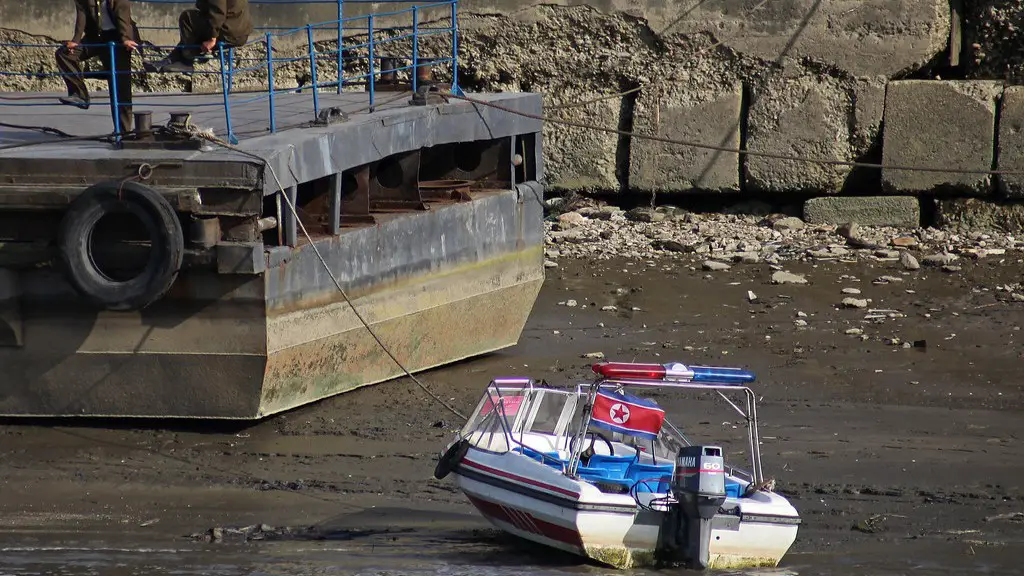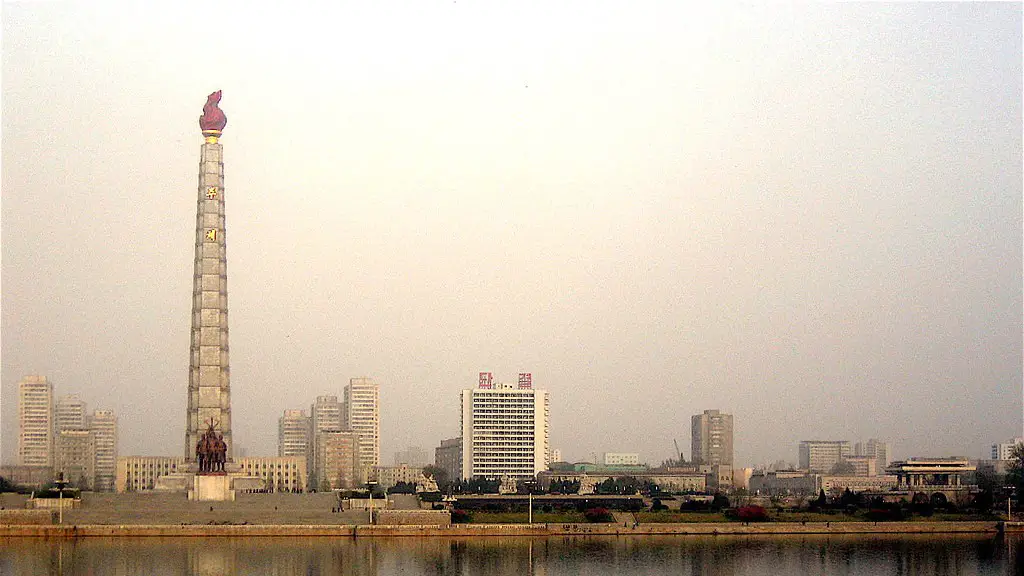Background Information
The Korean War was a military conflict fought on the Korean peninsula between the Republic of Korea (South Korea) and the Democratic People’s Republic of Korea (North Korea) from 1950 to 1953. It was a major proxy war of the Cold War, involving a number of other nations including the US, the Chinese and the Soviet Union. The war was an attempt by the North Korean government in Pyongyang, to unify all of Korea under a single socialist government, while the South Korean government in Seoul sought to protect its own borders. The conflict resulted in millions of casualties, and it remains unresolved to this day.
Relevant Data
The Korean War began on June 25th, 1950, when North Korean troops crossed the 38th Parallel, the dividing line between North and South Korea, and invaded South Korean territory. In response, the United Nations Security Council, with the United States in the lead, passed a resolution authorizing military action to restore peace. The United States led a United Nations coalition of forces from twenty-one nations, including the United Kingdom and France, in a three-year conflict. The war saw drastic changes to the landscape and population of the Korean peninsula—the vast majority of North and South Koreans lost their homes, their property and even their lives in the war. By the end of the war, over two million Koreans were dead, and millions of others had been displaced.
Perspectives from Experts
Scholars and experts generally agree that the cause of the Korean War was a combination of political, ideological and economic factors. From a political perspective, the Soviet Union and the United States were in the grip of an intense rivalry, and both countries were eager to extend their influence in the region. Ideologically, there was a distinct division between the Democratic People’s Republic of Korea (North Korea) and the Republic of Korea (South Korea), between communism and capitalism, and between authoritarian rule and democracy. The economic factor was the lack of resources in South Korea, which made it vulnerable to outside interference.
Analysis
The Korean War would have a profound and lasting impact on both North and South Korea, and it was the first time that the Cold War conflict between the United States and the Soviet Union would become a major military engagement. The war saw the Korean Peninsula divide along ideological and political lines, with North Korea becoming a “Hermit Kingdom”, isolated from the rest of the world, and its citizens living in poverty while the South developed rapidly into a democracy. This division still exists, and relations between the two countries remain strained. Both are now nuclear-armed adversaries, and many observers believe that the Korean War did not end in 1953, but rather continues to this day in a de facto state of cold war.
Impact of the War
The Korean War had a catastrophic effect on both North and South Korea. The Korean peninsula was heavily damaged by the war, with infrastructure, homes and agricultural land destroyed. Millions of Korean civilians were killed, and many more were displaced from their homes. Millions more civilians in both North and South Korea suffered psychological harm due to the brutality of the war. Politically and ideologically, the Korean peninsula was divided into two opposing blocs, with North Korea becoming a hermit kingdom, isolated from the rest of the world.
Reunification Efforts
Despite the tensions and mistrust between the two countries, there have been reunification efforts in recent years. In 2000, North and South Korea held historic talks in Pyongyang, and since then, there have been a number of diplomatic exchanges and economic agreements. In 2018, the two countries held their first joint summit in more than a decade, signalling a potential willingness to improve relations. In recent years, both countries have also begun to re-engage with the international community.
International Responses
The international community has responded to the ongoing crisis in North and South Korea in a number of ways. The United Nations has maintained a unified international stance on the need for a peaceful resolution, while particularly emphasising the necessity for sanctions against North Korea for its nuclear weapons programme. The United States and China have engaged in diplomatic and economic dialogue on the subject, with both countries seeing the importance of reunification and stability in the region. Other nations including Russia, Japan and South Korea have also been involved in talks and discussions in the search for a peaceful solution.
Cross-Border Relations
In recent years, there has been some progress in cross-border relations between North and South Korea. In 2018, the two countries conducted a historic summit in Pyongyang, in which they agreed to work towards a complete denuclearisation of the Korean Peninsula and permanent peace between the two countries. In addition, a number of economic, family reunions and cultural initiatives have been established with the intention of building ties between the two countries.
Economic Cooperation
Recent agreements have also highlighted potential opportunities for increased economic cooperation between North and South Korea. In 2018, North Korean leader Kim Jong-un and South Korean President Moon Jae-in agreed to co-develop projects in a number of sectors, including transport and energy. In February 2019, the two leaders agreed to resume a cross-border freight railway project, which had been suspended since the start of the Korean War. The project will provide a new transit route between North and South Korea and to other countries in the region.
Conclusion
The Korean War has left a deep divide between North and South Korea, and while tensions remain high, there have been some positive developments in recent years. Nevertheless, it is clear that there is still much work to be done to bridge the gap between the two sides and reunite the Korean Peninsula. In the long term, economic cooperation between North and South Korea, as well as international support, will be important if the two sides are to move towards lasting peace and stability.


